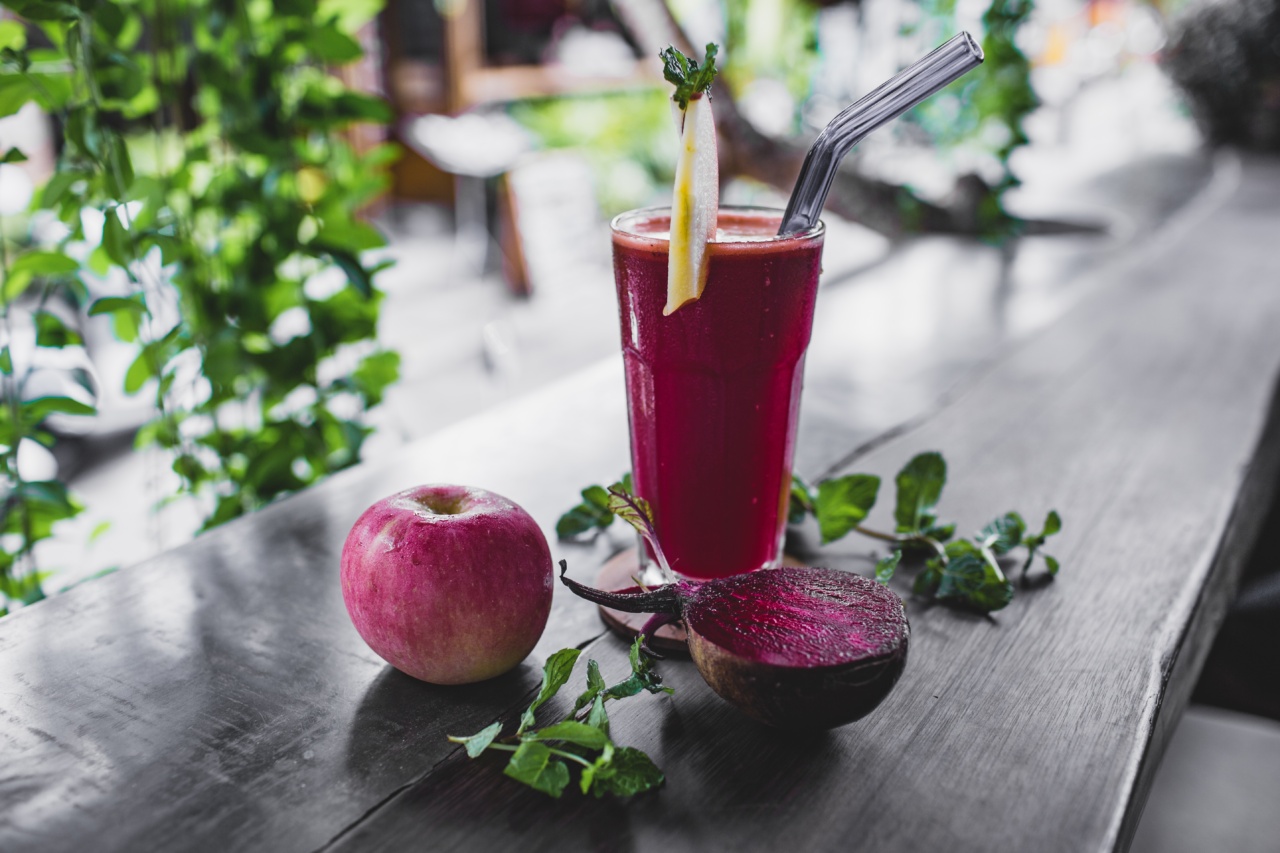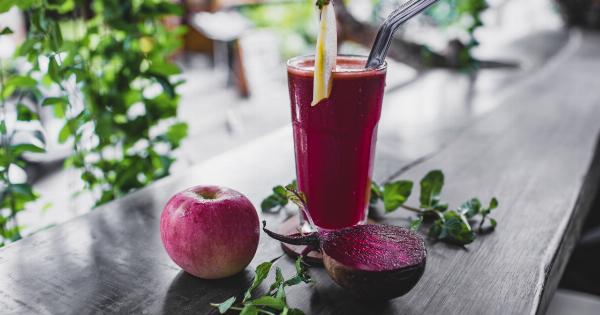Hypertension, commonly known as high blood pressure, is a medical condition where the blood pressure in the arteries is consistently elevated. It is caused by various factors including obesity, stress, genetics, and an unhealthy diet.
If left untreated, it can lead to serious health complications such as heart disease, stroke, and kidney failure. Luckily, there are several ways to manage hypertension, including regular exercise, medication, and a healthy diet. One dietary change that has been shown to potentially aid in the management of high blood pressure is the consumption of beetroot juice.
In this article, we will explore the benefits of beetroot juice for hypertension.
What is Beetroot Juice?
Beetroot juice is the juice extracted from the root vegetable, beetroot. This vegetable is rich in nutrients such as vitamins A, C, and K, calcium, iron, fiber, and antioxidants.
It is also a good source of nitrates, which are converted into nitric oxide in the body. Nitric oxide is a compound that helps to relax and widen blood vessels, thereby reducing blood pressure.
How Does Beetroot Juice Lower Blood Pressure?
Beetroot juice contains high levels of nitrates, which are converted into nitric oxide in the body. Nitric oxide is a compound that helps to relax and widen blood vessels, thereby reducing blood pressure.
Additionally, beetroot juice contains betaine, a compound that helps to reduce homocysteine levels in the blood. High levels of homocysteine are associated with an increased risk of hypertension and heart disease.
Studies on Beetroot Juice and Hypertension
Several studies have been carried out on the effects of beetroot juice on hypertension. One study published in the American Journal of Physiology found that consuming beetroot juice reduced blood pressure in healthy adults.
Another study published in the British Journal of Nutrition found that beetroot juice significantly lowered blood pressure in individuals with hypertension. This study also found that the effects of beetroot juice on blood pressure were more significant in men than in women.
How Much Beetroot Juice Should You Drink?
The amount of beetroot juice you should drink depends on various factors such as your age, weight, and overall health. However, most studies suggest that drinking 8 to 16 ounces of beetroot juice daily may have benefits for reducing blood pressure.
It is important to note that beetroot juice is high in sugar, so it is advisable to choose a low-sugar variety or dilute it with water wherever possible.
Other Health Benefits of Beetroot Juice
In addition to reducing blood pressure, beetroot juice has several other health benefits. These include:.
- Improved athletic performance: Beetroot juice has been shown to improve athletic performance by increasing nitric oxide levels in the body.
- Improved digestion: Beetroot juice is rich in fiber, which helps to promote healthy digestion.
- Reduced inflammation: Beetroot juice contains antioxidants and anti-inflammatory compounds that may help to reduce inflammation in the body.
- Improved brain function: Beetroot juice contains nitrates that help to improve blood flow to the brain, which may improve cognitive function.
Conclusion
Beetroot juice is a delicious and nutritious drink that may help to manage hypertension. Its high levels of nitrates and betaine can help to relax blood vessels and lower blood pressure.
Additionally, drinking beetroot juice regularly may have other health benefits such as improved athletic performance, digestion, and brain function. However, it is important to note that beetroot juice is high in sugar, so it should be consumed in moderation. Overall, beetroot juice is a great addition to a healthy diet and may help to promote optimal health.






























